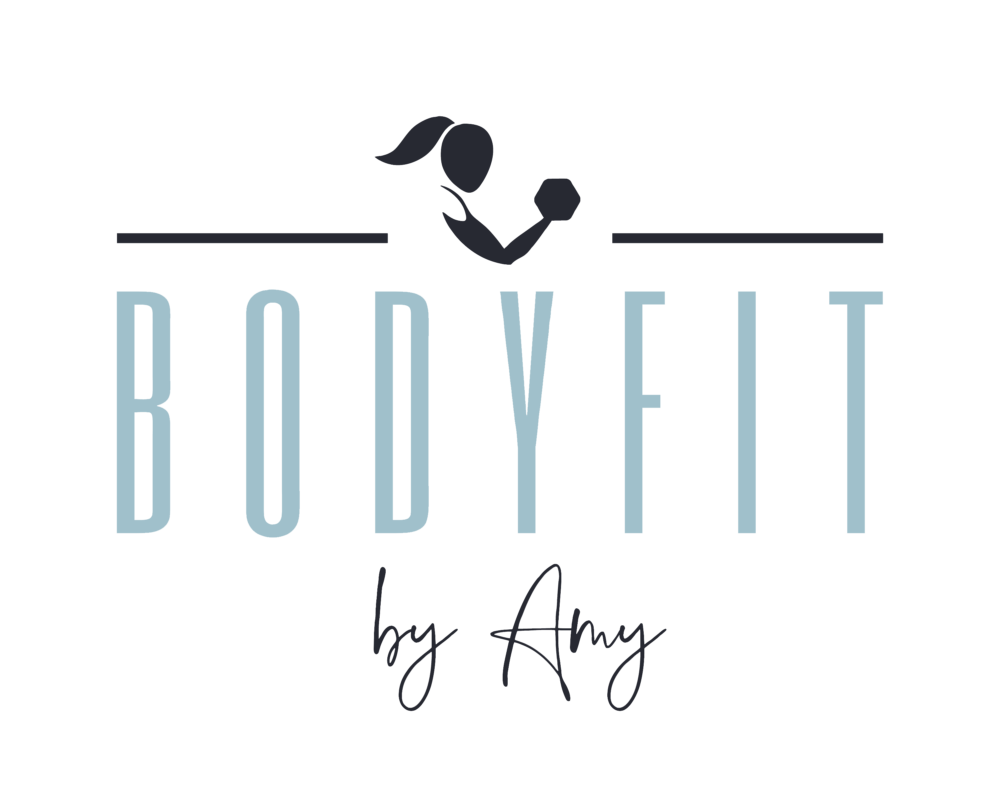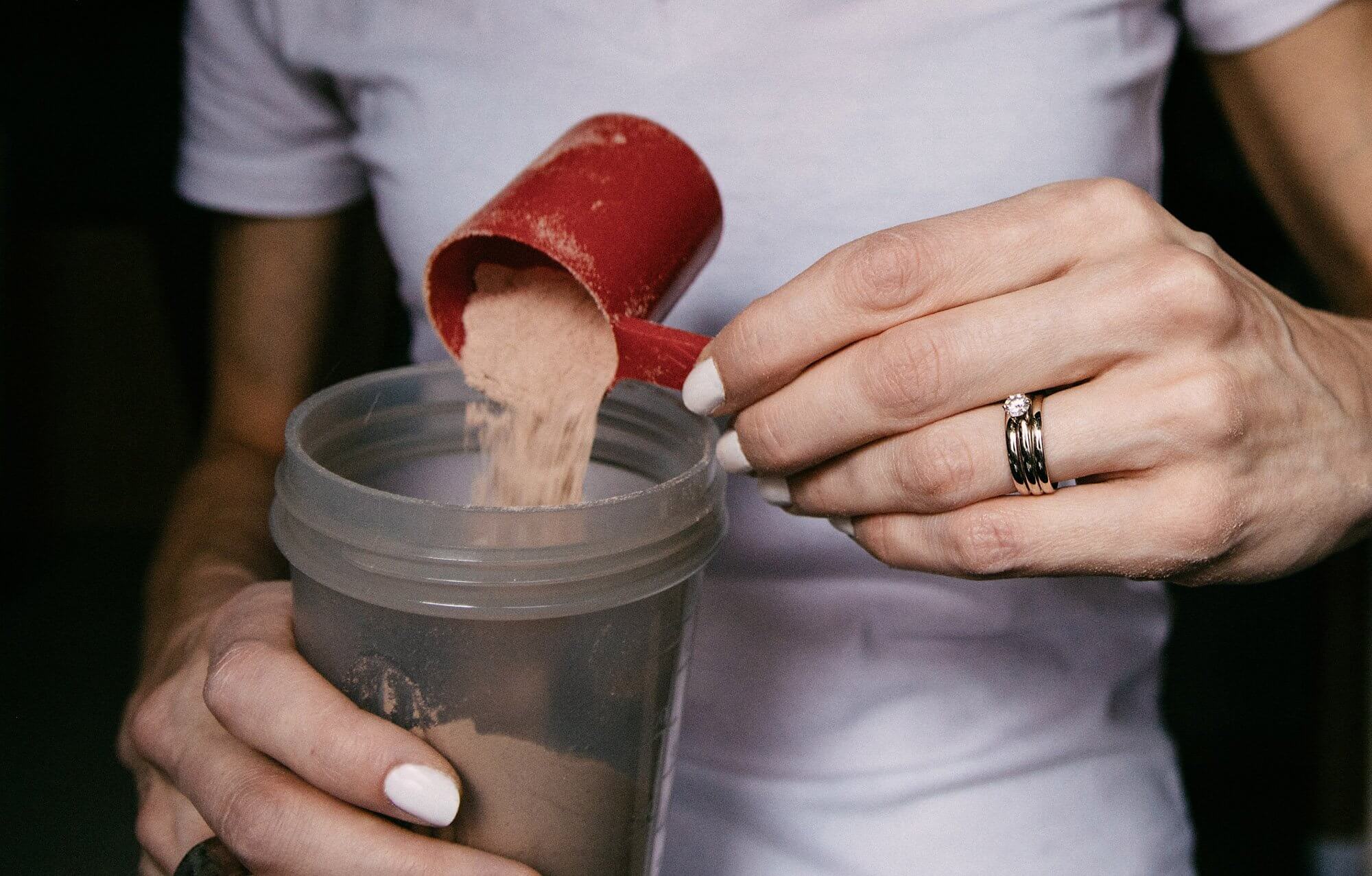If you walked by the protein powder aisle in your local grocery store, you were probably completely overwhelmed by the endless options. What’s the best protein powder? Is it collagen? Whey? Plant-based? And do you really -need- a protein shake during the day or after your workouts?
These are questions we (Amy and Vivian) get a lot here at Bodyfit by Amy. The answers aren’t completely cut and dry, but hopefully we can offer some insight!
Protein shakes have gotten a good rep for being a great post-workout snack, and we agree! Getting a good mix of protein and carbs, can replenish glycogen storage and aid in muscle recovery. But if shakes aren’t your thing, there are several other post workout snacks that can do the same. Check out our Nutrition eBook for ideas!

Do you need to drink a protein shake?
Nope. You do not need to drink a protein shake. Most people get plenty of protein from eating protein-rich foods like eggs, dairy, or meats, but shakes are often a convenient way to get extra protein, if you need it. In addition, protein shakes are great for individuals who don’t love protein foods or those who are vegan or vegetarian. When I was pregnant and nauseous, I couldn’t eat much meat or eggs, so having a daily shake was a huge help.
I also love the convenience of shakes— I almost always make a quick one after a workout (see my favorite shake below!) and often when I’m running behind in the mornings and need to eat something on the go.
With that, you may be wondering what the differences are amongst protein shakes. Vivian breaks down the different types of protein powders and tells you how to choose the right one:
WHEY PROTEIN
What Is It?
Whey is a milk protein that is found in the watery portion of milk (also a byproduct of cheese making). Whey is a great source of branched-chain amino acids (aids in muscle growth and recovery) and is quickly absorbed by the body, which makes it a great post-workout option.
Keep in mind that whey occurs naturally in milk, so having any dairy product such as yogurt or milk after a workout will provide you with the same benefits!
Note: If you have a milk allergy or are lactose-intolerant, you should not consume whey protein powder.
How Do I Choose One?
When choosing a whey protein powder, you will be faced with two options: whey protein concentrate and whey protein isolate. Whey isolate is more than 90% protein, whereas whey concentrate contains more fat, lactose and protein content ranges from 30% to 89%. Whey isolates are often better tolerated because they have most of the lactose removed. I recommend choosing a whey protein powder that is unflavored 100% whey isolate. If you don’t have issues with whey, you can certainly choose a whey concentrate, if you prefer. Regardless of what you choose, I recommend going with an unflavored (unsweetened) option. Whey mixes well with other flavors, so you can combine with fruit to add sweetness (and fiber!).
If you’d prefer a flavor, here’s a Vanilla and Chocolate we like.
PLANT-BASED PROTEIN
What Is It?
Plant-based protein powders typically contain a blend of plant-based proteins such as pea, soy, brown rice, or hemp. This combination of plant-based proteins provide adequate BCAAs and are a great protein option for individuals who avoid dairy or those who are lactose-intolerant. Plant-based protein powders often have enzymes added to them, which help increase the rate of absorption and digestion. The addition of enzymes and the use of plant-based protein combinations make plant-based protein powders a comparable option to whey.
How Do I Choose One?
Look for one with a combination of plant-based proteins. Choose an unsweetened option, or one with less than 8 grams of sugar per serving.
Amy loves Arbonne’s Chocolate Protein.
COLLAGEN
What Is It?
First and foremost, collagen is NOT a complete protein and should not replace your protein powder. Collagen peptides are excellent for your skin (tons of research to support this!) and there is promising research on the benefits for joints. I personally use unflavored vital proteins collagen powder every day in my coffee and love it! Even though collagen is technically a protein, it is an incomplete protein (meaning it doesn’t have all of the amino acids that a piece of chicken would). I recommend using collagen IN ADDITION to another source of protein. I love to think of collagen as a “booster” in my smoothies or to add a bit of creaminess to my coffee, but I never use it in place of eggs or a protein powder.
How Do I Choose One?
Purchase grass-fed collagen peptides. Make sure you look for the keyword peptides. Products that simply have ‘collagen’ are not absorbed by the body, so they won’t provide much benefit. Our favorite: Vital Proteins.
A final note on protein powders: regardless of what protein powder you choose, I encourage you to choose one with minimal ingredients and with less than 8 grams of sugar per serving, if you choose the sweetened versions. Make sure you read the labels, and I encourage you to avoid protein powders with these ingredients: monoglycerides, diglycerides, artificial flavors, artificial sweeteners (sucralose, aspartame, acesulfame potassium), crystalline fructose, corn syrup, high fructose corn syrup and carrageenan.





0 Comments